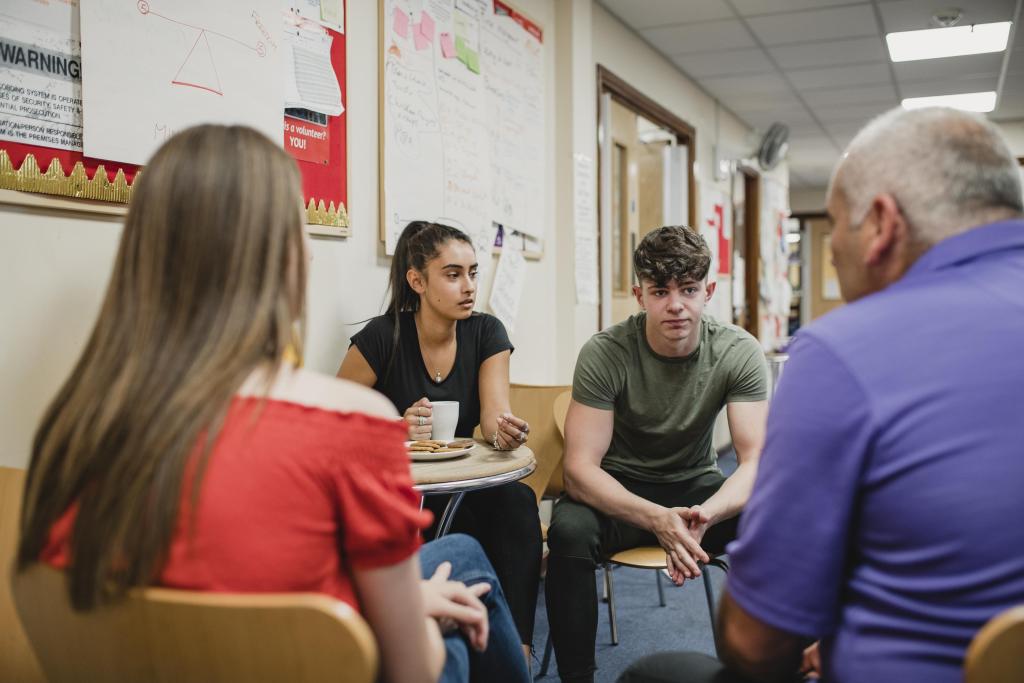This leaflet helps you to prepare for the meeting with the adult making a decision about you.
In the leaflet, you will find information about why it’s important for you to give your opinion. We also help you to prepare for your meeting. We’ve included some example questions for you. You can answer them and take them with you to the meeting. At the end of the meeting, it’s important to look back at how it went. You can use our checklist to see whether you were able to say everything that’s important to you.
Want to find out all about your rights? If so, take a look at our page about children's rights.
Not sure exactly what we mean by decisions about your life? We have written down some examples for you below.
Important factors in decisions
These are examples of decisions made about you:
- Your parents are getting divorced and a decision is being made about who you will live with and where.
- You’re having some problems and are in need of care (for instance, medical care) or help.
- It's not safe for you at home and a decision is being made about whether you need to live in a foster family, or (group) foster care.
- You've committed a crime and a decision is being made about what punishment you will be given.
- You need to change schools and a decision is being made on the best school for you.
- You’re a refugee and a decision is being made as to whether or not you can stay in the Netherlands.
Key moments in any decision
Whenever a decision is made about your life, lots of different things happen. Below we take you through these different moments.

1
Preparing for the meeting
The adult making the decision needs to know as much as possible about you. This is why it’s important to ensure that you’re properly prepared. Example questions can help you with this. You can find these on pages 7 and 8 of the leaflet.
Preparing for the meeting
Less information aboutPreparing for the meeting

2
At the end of the meeting
At the end of the meeting, it’s important to look back together at how it went. Was it a pleasant meeting? Was the venue safe? Did the adult really understand what's important to you? Is it clear what you think the best decision is?
Our checklist 'The best decision for you, a quick check!’ can help you to answer these questions. View the checklist and complete it now.
At the end of the meeting
Less information aboutAt the end of the meeting

3
The decision has been made
You need to be given an explanation of the decision. You also need to be told how your opinion has been taken into account. Don’t understand it? Ask for more details. It’s good if the decision is written down on paper for you. That way, you can read it again later.
Don’t agree with the decision or do you have questions? You can always ask for help from an adult you trust. Or you can go to the local legal services centre for children and young people. You can also contact the Ombudsman for Children. Call 0800 - 876 54 32 free of charge between 12:00 and 17:00 or send an email to ombudswerk@kinderombudsman.nl.
The decision has been made
Less information aboutThe decision has been made

Having difficulties reaching agreements together? Or do have any other questions?
You can contact the Ombudsman for Children. We will be happy to help you and suggest ideas. Call 0800 - 876 54 32 free of charge between 12:00 and 17:00 or send an email to ombudswerk@kinderombudsman.nl.
Leaflet for professionals
For professionals, the leaflet ‘The best decision for the child in four steps' is available. These steps help professionals to make a carefully-considered decision. The leaflet also includes information that will help you prepare for the meeting with a child.
The checklist for children is also useful for professionals. The checklist includes questions that children can use to check that proper account has been taken of what they consider to be important when a decision is made. Professionals can use the checklist to check if they have forgotten anything.
Checklist: Decision about me
If a decision is being made about you, you can use these questions as a quick check to make sure that the things that are important to you have been taken into account. You can do this if the decision still needs to be made but also if it has already been made. The questions are for children and young people like you, but can also be used by adults.
